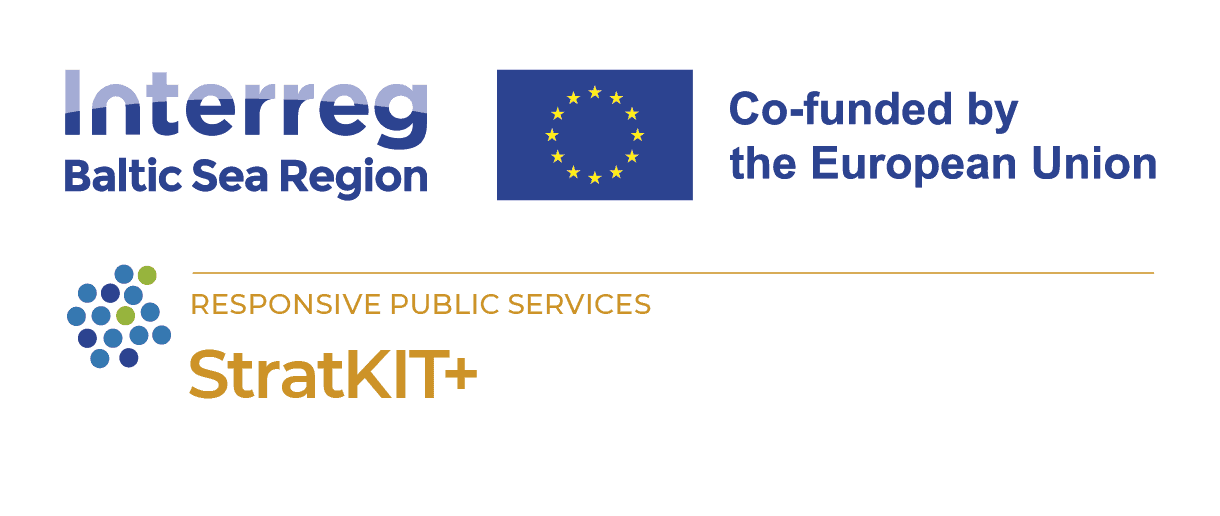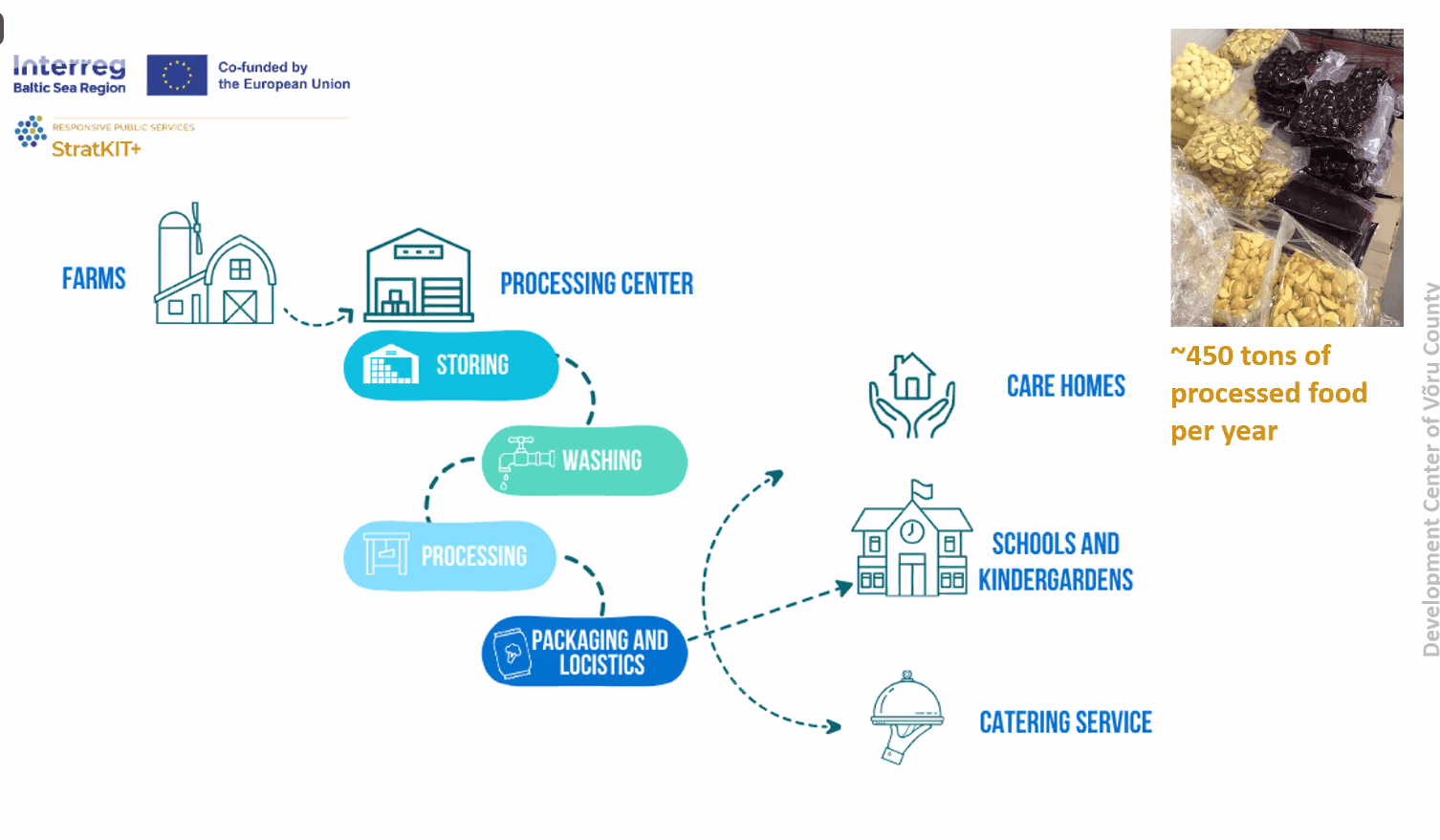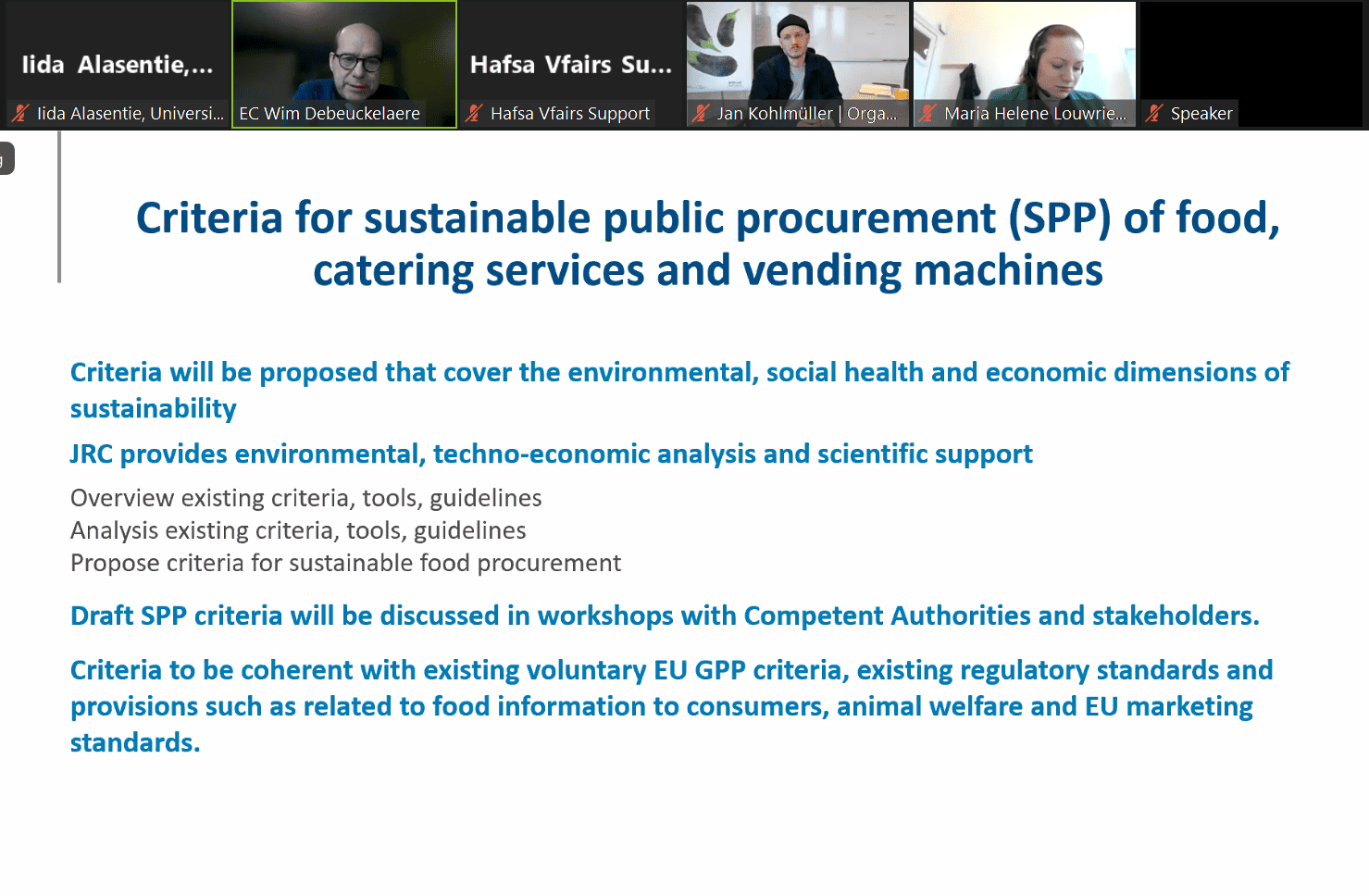
Insights from the StratKIT+ Final Conference on 7.2.2024
09 February 2024
The 2,5-hour event started with a warm welcome from the Moderator Rose O’Donovan, reporter and Editor at AGRA FACTS. Before diving into the outcomes of the StratKIT+ project, we learned about the initiative for public procurement from the Farm to Fork Stategy’s Policy Officer Wim Debeuckelaere at the European Commission, DG SANTE. The presentation highlighted the need for strategic support and join networks to achieve long lasting changes towards sustainable public procurement. Throughout the conference Mr. Debeuckelaere provided comments to the speakers and shared insights on how to take the European Commission’s strategic goals into account when developing the local sustainable public meal services.
Leena Viitaharju, the StratKIT+ project coordinator from University of Helsinki Ruralia Institute gave the audience an overview of the activities and outputs in the StratKIT+ project. Viitaharju reminded the audience that StratKIT+ is continuation to the StratKIT project (2019-2021) where the Sustainable Public Meal Toolkit was originally developed to guide public authorities, public meal providers and others on sustainable food procurement. In StratKIT+ (2022-2024) the toolkit has been further developed through geographical expansion and with new practical tools and guidance that help stakeholders to improve the sustainability and crisis management of public meals. In total 16 new tools have been developed as part of the expansion. All new additions to the toolkit are available in 9 different languages: English, Danish, Swedish, Finnish, German, Latvian, Lithuanian, Polish, and Estonian.
The expanded Sustainable Public Meal Toolkit was presented by 4 different StratKIT+ partners who have been developing the Crisis Management Package and testing the newly developed tools. Thanks to Sara Seing from Södetälje Municipality (Sweden), Karen Hamann from Institute for Food Studies and Agroindustrial Development (Denmark), Kristin Krinal from Development Centre of Võru County (Estonia) and Katarzyna Brukało from Medical University of Silesia (Poland), the expanded Toolkit was made familiar to the audience and the practical examples and visual material provided great insights on how the Toolkit can be useful for different public meal actors in Baltic Sea countries and beyond.
The audience got to also enjoy practical examples from other European actors who have been collaborating with the StratKIT+ project partners. Rasmus Lillelund Lovring and Jeppe Deleuran from Aarhus Municipality shared experiences about the implementation of CO2 tax on meat in the city of Aarhus. Aarhus Municipality has become familiar to the partners through the original StratKIT project, where they acted as a joint partner. The Q&A session after the presentation was very active and the speakers received wide range of questions regarding the consumption and price of red meat after the tax. Addition to this, the importance of different diets and allergies was considered as something very important when developing new sustainable and climate-friendly menus for public kitchens.
Jan Kohlmüller from BioStadt Bremen enlightened the conference attendees with insights about the collaboration between the Bremen City and StratKIT+ project. BioStadt Bremen is an active member of the Organic City Network and in the city they are working hard to develop the sustainability and healthiness of public meals – in this the organic food plays important part. It was very encouraging to hear how the City of Bremen has been benefitting from the practical examples and guidelines of Sustainable Public Meal Toolkit in their daily work.
All in all, the StratKIT+ Final Conference was a great success with wide range of new ideas and shared experiences from different actors in public procurement. Big thank you to all the speakers and participants who took part to the event!







